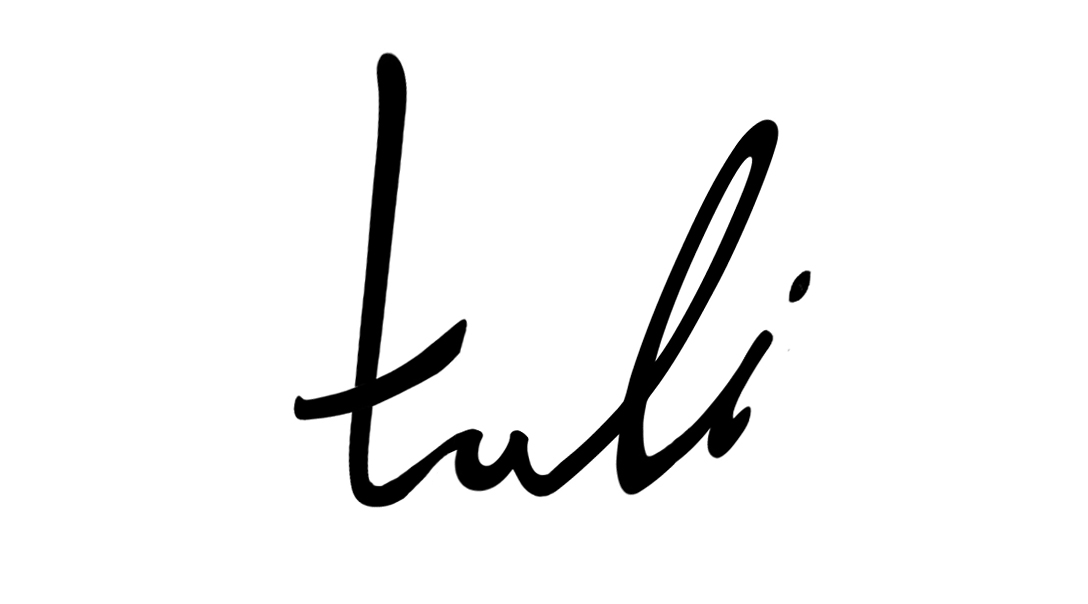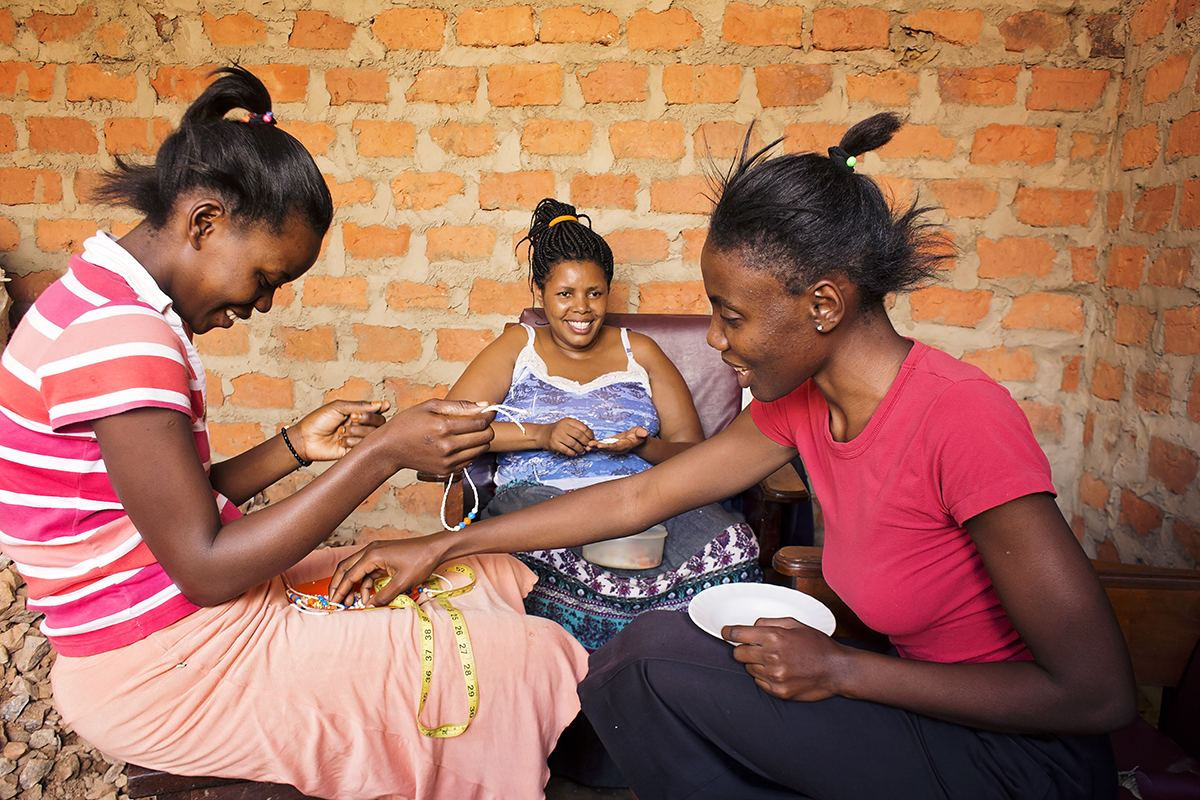I’m Megan Kitt, founder of Tuli, and I want to end poverty.
Years ago, I witnessed levels of tenacity and grit I’d never before encountered while in Uganda on assignment as a journalist. I met women living in slums who so badly wanted jobs that they salvaged trash — bits of paper — to make into jewelry and bring to the markets daily. They rarely made sales, but that didn’t stop them: Even the slightest hope of earning money for their families was enough to keep them going.
Travel always gets me thinking about my position in the world, and the advantages I hold for the passport I carry, the native language I speak, the education my upbringing provided. Meeting these women illustrated another of my privileges: Access to a market.
So, I partnered with a small group of women, led by our current production manager, Evaline, to adapt their craft to a global market, and I returned to Tokyo, where I lived at the time, with a suitcase full of jewelry. That was 2014, and that was the start of Tuli.
I cobbled together a website, learning as I went. I’d worked as a fashion model to pay for college, so I had a basic understanding of the fashion industry, but more importantly, I knew amazing people who helped me to develop the concept. We spread the word for free on social media (hello, journalist’s salary!) but we made sales. Slowly, at first, but then we made more. And then some more.
A lot has changed since then. We’ve expanded our Uganda team and, in 2017, we expanded into Kenya to launch our brass collection. As for our US team, I’m happy to report that it’s no longer a one-woman show, though we are still modest in size. Our revenue has grown quickly, and we’ve met customers and collaborators whose passion for making a difference is motivating and fulfilling. Tuli’s sales have funded educations through university (public education is not free in East Africa), empowered our artisans to start businesses and buy and land, and more. What hasn’t changed: our mission.
At Tuli, we want to end poverty — sustainably. Billions of dollars have been spent combating global poverty, but the problem persists. Abandoned aid projects are common across not just East Africa, but the entire developing world. I believe economic development and job creation is the key to solving this problem for good — and I’ve seen it work in the lives of Tuli’s artisans.
On behalf of our entire time, thank you for your support and interest in shopping ethically. I cannot overstate the truth that every product we sell creates a real, lasting impact in East Africa. Tuli exists because of the people who support it, and the stories of lives changed in East Africa are more yours than they are mine.





